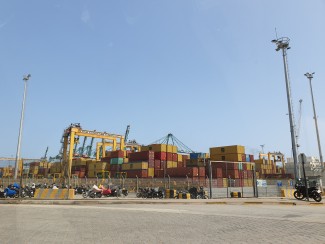Chandra and her 25 colleagues from her women's association take a break from the day's farming business to hold a meeting on their ginger business prospects and the stiff market competition they face with India's value-added ginger. Chandra confidently chips in, "We may even be able to compete with Indian traders. Our main problem is the absence of necessary things, such as washing and processing plants. If we can have all these facilities at our own place, we will be happy."
Thanks to development partners, help has been given to Chandra and the rest of the ginger farmers' communities through a project jointly supported by the EIF and the Standards and Trade Development Facility and implemented by the Food and Agriculture Organization.
Ginger farming has supported us to educate our children, provide for our food and clothing. We need to make a little bit of saving. All these things are necessary for the future of our children.
Unwashed ginger could not be exported due to the lack of compliance to required sanitary and phytosanitary standards and yet, washing a large quantity of ginger for export requires a lot of water that was not sufficiently available in the mountain region in Eastern Nepal, where this ginger is produced. The project has supported the construction of a centralized washing system in participation with wider communities. It has now been established in the plain at Duwagadhi of the Jhapa district, where the extraction of water and the management of drains is well justified economically, socially and environmentally.
The process involves bringing deep water to the surface, removing sediments from effluent, recycling de-silted water and again recharging ground water. The facility has just been completed and will create over 200 seasonal jobs, reduce marketing costs and post-harvest losses by 30% and improve prices attainable for the exported ginger/ginger products, thereby creating gross margins of 25% for ginger farmers. All dressed in deep pink shades of saris, Chandra and her 25 colleagues emphasize the benefits of ginger farming to their community.
If you would like to reuse any material published here, please let us know by sending an email to EIF Communications: eifcommunications@wto.org.


